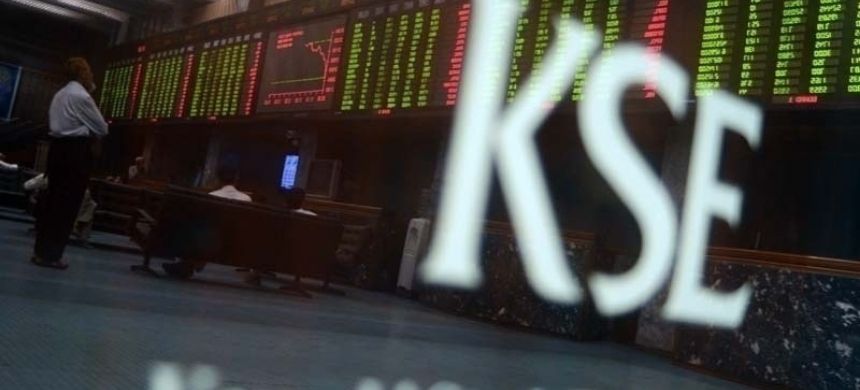The KSE-100 index at the Pakistan Stock Exchange (PSX) witnessed high volatility on Monday as cross-border clashes between Pakistan and Afghanistan dampened investor confidence. The benchmark index dropped sharply during early trading before regaining some ground later in the session.
In the opening minutes, the KSE-100 plunged nearly 3,000 points due to panic selling across major sectors. However, the market found support as investors showed renewed buying interest in select blue-chip stocks, helping the index recover part of its losses.
At 10:30 AM, the KSE-100 stood at 161,794.58 points, down 1,303.61 points or 0.8%. Selling pressure was noted in key sectors such as automobiles, cement, commercial banks, fertiliser, oil and gas exploration, refineries, and power generation. Major stocks like HUBCO, MARI, OGDC, PPL, POL, HBL, and UBL traded in the negative zone.
Market analysts linked the decline to heightened geopolitical uncertainty. Sana Tawfik from Arif Habib Limited (AHL) said, “The selling pressure is mainly due to weekend developments, including geopolitical factors and cross-border tensions.”
Waqas Ghani, Head of Research at JS Global, shared a similar view. He said investors were reacting cautiously after reports of violence at the Pak-Afghan border. “Sentiment remains weak due to uncertainty and profit-taking after recent market gains,” he added.
According to the Inter-Services Public Relations (ISPR), at least 23 Pakistani soldiers were martyred and over 200 militants killed in intense overnight clashes along the border following an unprovoked attack from Afghan territory.
In other related news also read Investor Optimism Fuels Historic Surge in Pakistan Stock Market
Last week, the KSE-100 had already seen pressure, declining 3.5% to close at 163,098.19 points as trading volumes and investor activity weakened after several weeks of steady advances.
Global factors also contributed to the cautious mood, as Asian markets declined due to renewed US-China trade tensions and political uncertainty in Japan. Despite early losses, analysts believe the KSE-100 could stabilise once geopolitical tensions ease and investor confidence returns.











